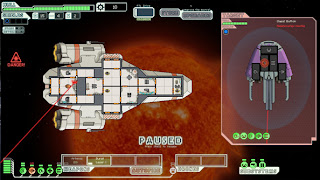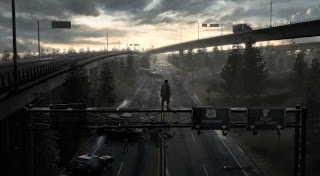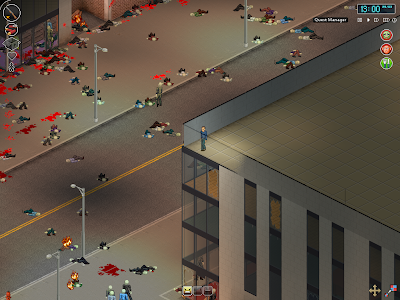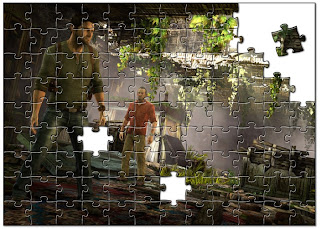Peril is a crucial part of most story telling. Even though we all know that there is very little chance that the protagonist of our favourite stories can fail in their journey, it's very important to believe that they might. Whether it's Harry Potter at the end of JK Rowling's books or Frodo at the end of the Lord of the Rings, we need to believe they could die..
What's got me thinking about this is the distinct lack of peril in games. For example, I love Skyrim and have spent around a hundred hours in the remarkable world created by Bethesda. As my level 50 warrior strolls around clad in Dragon Bone armour with swords and shields suitably enchanted, the chances of me meeting anything that should even begin to bother me is minimal. However, even early in the game the thought of backing away from a confrontation is virtually zero. Why? Well, if I should die when charging brainlessly in to battle then I simply reload from a few minutes before and avoid the battle entirely or approach it in a different way.
Anyone who has played a Call of Duty game online is well aware that people charge around like they're Superman, shooting anything that moves for 10 minutes or so and likely get killed by nearly as many people as they kill (everyone would of course tell you their Kill Death Ratio is much better than 1:1 though).
Imagine if you will though, walking across one of Skyrim's beautiful vistas and seeing a dragon circling on the horizon but instead of charging in fearlessly, ducking behind a tree and hoping the majestic beast hasn't seen you. Why? Because dying in the game has real consequences. Perhaps even the permanent death of a character that has seen you through 50-100 hours of gaming.
Now, I'm not stupid of course and realise that most gamers would be put off in an instant by perma-death of a 70 hour RPG character or if death in Call of Duty multiplayer meant a 24 hour lockout of the multiplayer component but perhaps there should be an option or rewards for selecting this most hardcore of hardcore gameplay styles. I worry that without it games and gaming lack an edge of excitement that they could have.
The Walking Dead by Telltale games managed to make you fear death throughout its first season and never left you resting on your laurels. Perhaps this is why the game has garnered such positive reviews and the delight in not knowing who would make it to the next episode kept many playing (and voting it as their game of the year).
I know that this is a post that will mean nothing to most and in fact, death is becoming less and less of an issue in gaming. From near constant autosaving forcing the loss of a few minutes of game time in most games through to the actually impossible to die 2008 Prince of Persia game (which was excellent), the aim to gather more casual gamers will likely make death more and more unlikely. I just state for the record, I would like more peril in gaming as it's what makes story-telling exciting.
As always, love to get your comments and thoughts.






















